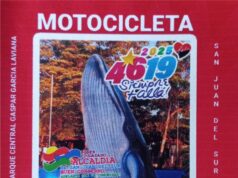A lot of people moving here ask about importing a vehicle into Nicaragua for permanent personal use. This is called “nationalization” and is a different process to those driving a vehicle here on a vacation, or driving through Nicaragua to somewhere else (temporary importation).
Importing a vehicle into Nicaragua can be done, providing it meets the age limitations of the particular category of importation.
Note; this supersedes the previous article on vehicle imports. Some of the tax and duty exoneration rules have changed since then and we have included links to the changes.
1) Vehicle Age Limits
Any Nicaraguan national or foreigner can import a vehicle that is no more than ten (10) years old from the date of manufacture (not first registered).
2) Law 694 Incentive
This covers vehicles imported by Nicaraguans and foreigners under an incentive law for legal permanent residents in the Pensionado and Rentista categories as well as Nicaraguan’s qualifying under the section on repatriation.
Vehicles imported under these categories must not be more than seven (7) years old “from the date of manufacture” not first registration.
3) Exemptions to the Ten Year Rule
- Vehicles can be older than 10 years if they are being imported to be donated to the Fire Department, Nicaraguan Red Cross, churches and religious foundations that are legally incorporated.
- Registered “Classic or Historical vehicles” that are over ten years old can be imported under the antique/classic section. This will get you around the age limit but not the taxes, duty and fees.
4) Vehicle Valuation
The value of the vehicle is determined by Aduanas (Customs) on the date and point of entry. This almost certainly will not be the same as any Black Book or Blue Book price you have used or what you think its worth. Even if it was a gift, you can still be taxed based on the perceived value of the vehicle at the point of entry. (See CIF Value below)
5) Tax Exemptions (Changes)
The benefits and exemptions for importing a vehicle into Nicaragua under Law 694 (Article. 7, paragraph 4) used to read;
“Exempt from payment of import taxes and Value Added Tax (15% IVA) for the introduction or local purchase of a new or used motor vehicle for their personal use or that of their dependents, whose maximum CIF price is the equivalent in national currency of up to Twenty-Five Thousand Dollars of the United States of America (US $ 25,000). The Pensionado or Rentista beneficiary will enjoy this benefit every four years.”
However, under the new Consolidated Law 694 (July 2020), Article. 7, paragraph 4; Benefits and exemptions, now reads;
“Exempt from the payment of Value Added Tax (15% IVA) for the introduction (importation) or local purchase of a new or used motor vehicle for their personal use or that of their dependents, of a maximum CIF price equivalent in national currency up to Thirteen Thousand US Dollars (US $ 13,000). The Pensionado or Rentista beneficiary will enjoy this benefit every four years.”
The consolidated law incorporates all of the amendments to law 694, the incentive law for the promotion of retirees, originally approved in June of 2009.
The wording of the consolidated law eliminates the import tax exemption and cuts the IVA exemption by almost half (US $25,000 down to US $13,000).
Note: If the vehicle you are importing exceeds that CIF value (US $ 13,000), then you must pay the excess on the exonerated value.
The CIF value is an international shipping term and means “Cost, Insurance and Freight”.
6) Taxes Duty and Fees
Imported vehicles are subject to something called the “Selective Consumption Tax” (Impuesto Selectivo de Consumo or ISC by its acronym in Spanish). In February 2019, Law 987, The Law of Reforms and Additions to Law 822 was introduced and the Selective Consumption Tax on vehicle imports now shows the various tariffs as;

IVA (Impuesto de Valor Agregado) is a 15% Value Added Tax much like a Goods and Services Tax and is added to the Consumption tax amount.
7) Documents
Nationalization requires documents that support your purchase or acquisition as well as the legal title and the paper trail of it getting here. These include, but are not limited to; a customs declaration, commercial invoice or title, bill of lading, declaration of value, fiscal solvency, bank statement showing all taxes and duties paid and the exoneration of any liens on the vehicle.
8) Customs Agents
Aduanas recommend using the services of a customs agent or expediter. There are a number of shipping companies that offer a “roll on roll off” service.
9) Completing the Nationalization
When the nationalization has been “settled”, to use the Aduanas term, your customs agent can appear before Aduanas to receive the vehicle at the location it has been held (or you may already be using it under a temporary importation certificate). At that point it’s a matter of registering the vehicle at your local Traffic Police (Tránsito Nacional) office in much the same way as any other vehicle.
There will be a notification on the registration of the vehicle if it is being imported under Law 694 with reference to the taxes that will have to be paid if the vehicle is sold within 4 years of importation.
You may also have to pay storage at this end depending on how long it was in customs before you get it out.
10) Confusion over the Seven or Ten Years Limit
Many foreigners get confused over the vehicle age limit. The exoneration above for legal residents is one reason and another is the confusion that was created when the Coalition Tax Act, Ley 822 came into effect on the 18th of December 2014. This legislation stated that the maximum age for an import vehicle was only 7 years, however was a contradiction of an existing law. This oversight was quickly changed back to 10 years maximum within a month. Click on this link for the Official Circular CT/040/2015 that confirms its 10 years for a regular importation.







